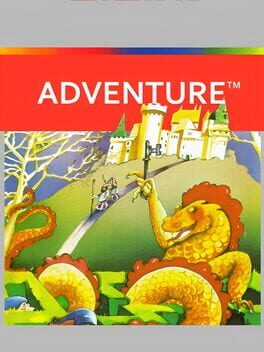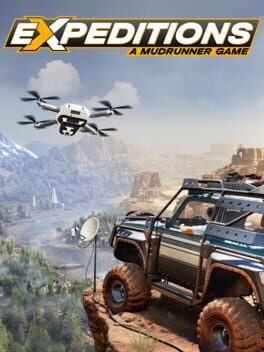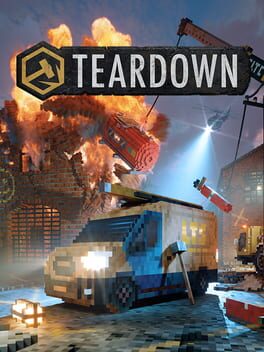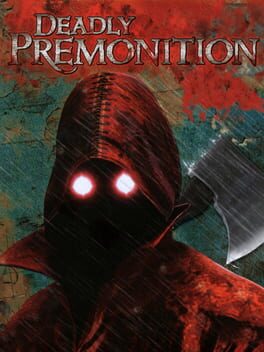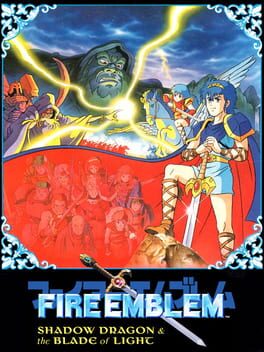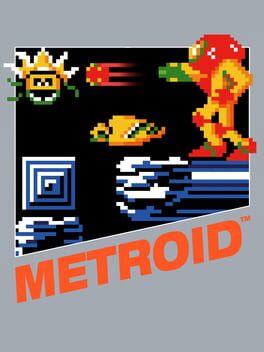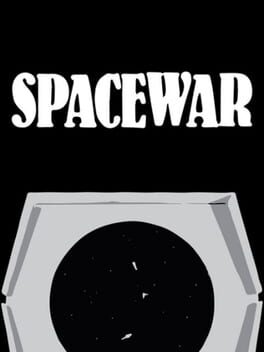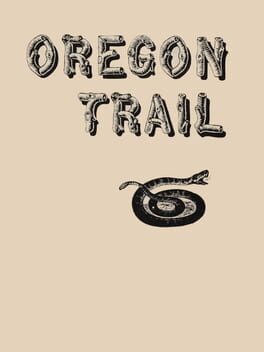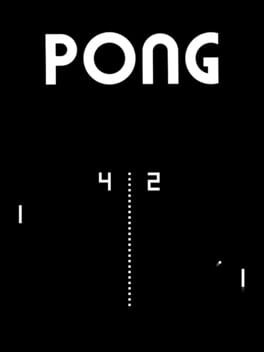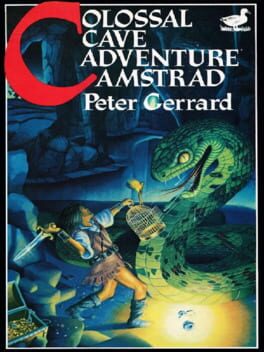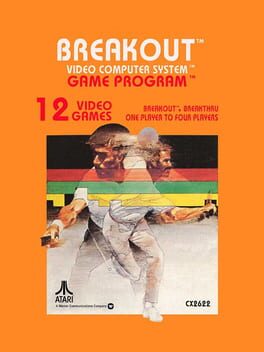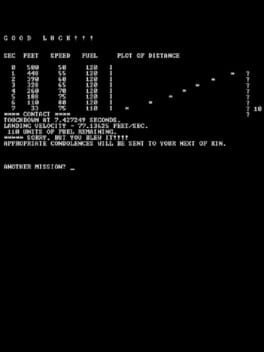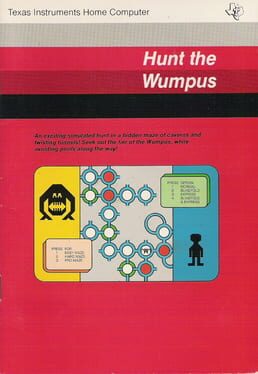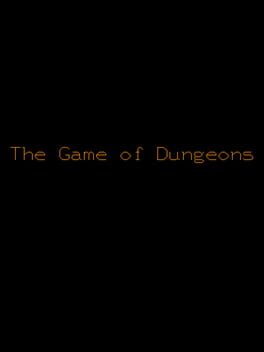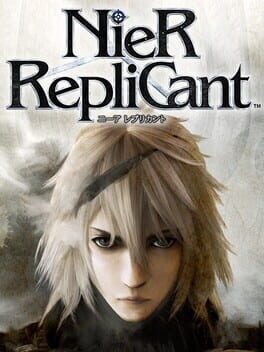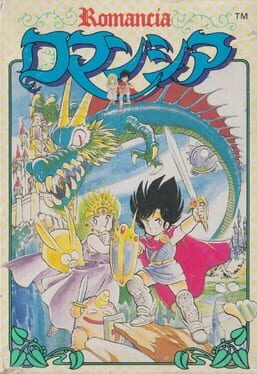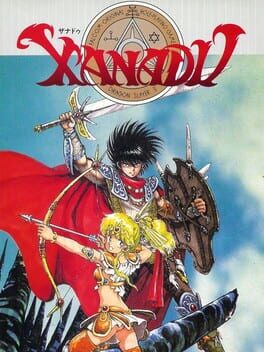Aeneas
3 reviews liked by Aeneas
Adventure
1979
The first great triumph of purely videogame adventure is also one of the first great triumphs of abstraction. The power of Adventure goes beyond the evocative, which is no menial thing, but embraces a wholly abstract language to build a world far more robust and plausible than any other that actively attempts to imitate reality.
It is curious for Colossal Cave Adventure to be one of the main sources of inspiration. It isn’t unexpected that it was taken as a source, as there must not have been many successful examples at the time in the search of adventure, but in how the paths diverged, almost reactionary. Adventure gets rid of words altogether to commit to a total physical world. Consequently, contrary to what abandoning immediate realism may imply, the world of Adventure becomes much more intuitive and believable. There is no longer the conflict of having to puzzle out what kind of commands a word processor is able to understand or not in order to move forward, there is instead the discovery of a system that, while allowing itself to be much simpler, is also much more transparent.
You can grab objects and drop them, birds can also carry (and steal) objects, magnets attract objects contained in the same screen, bridges allow you to cross walls (or whatever they are)... All these rules are not broken at any time and lead to a world that, as Tim Schafer says in the Atari 50 Collection, seems alive, that is able to exist even if the player is not present. Thus, birds can carry away a dragon, a key, a magnet attracting a key, or the player can peek sections of the world while traveling defeated in the belly of a dragon. This contributes in two areas: one of wit from being able to use the available elements in our favor to avoid or tackle obstacles, and another of unpredictability, chaos and life, because given the rules the dislocations of all the elements throughout the map during the game are more than certain. There is always a factor that requires improvisation while continuing the discovery.
It’s difficult to explain how well Adventure applies multiple abstractions to its advantage since many of them have been irremediably absorbed by everything that would come after. As Terry Cavanagh understood in Mr. Platformer, paying homage to similar early titles such as Atari 2600’s Pitfall or Montezuma’s Revenge, these first videogame steps that began to understand abstraction also began to use it as a liberating language. Where entering through a door into a fortress was teleporting into a labyrinth, moving past the edge of the screen was discovering a new piece of the world and doing so repeatedly on the same side discovered a spatially impossible loop.
It's a process of genuine discovery because it doesn’t attempt to clumsily replicate reality, but rather to discover new ways of navigating, interacting and understanding a world. And in the face of all these new, impossible and abstract forms remains a strong, direct and unmistakable sensation: Adventure.
It is curious for Colossal Cave Adventure to be one of the main sources of inspiration. It isn’t unexpected that it was taken as a source, as there must not have been many successful examples at the time in the search of adventure, but in how the paths diverged, almost reactionary. Adventure gets rid of words altogether to commit to a total physical world. Consequently, contrary to what abandoning immediate realism may imply, the world of Adventure becomes much more intuitive and believable. There is no longer the conflict of having to puzzle out what kind of commands a word processor is able to understand or not in order to move forward, there is instead the discovery of a system that, while allowing itself to be much simpler, is also much more transparent.
You can grab objects and drop them, birds can also carry (and steal) objects, magnets attract objects contained in the same screen, bridges allow you to cross walls (or whatever they are)... All these rules are not broken at any time and lead to a world that, as Tim Schafer says in the Atari 50 Collection, seems alive, that is able to exist even if the player is not present. Thus, birds can carry away a dragon, a key, a magnet attracting a key, or the player can peek sections of the world while traveling defeated in the belly of a dragon. This contributes in two areas: one of wit from being able to use the available elements in our favor to avoid or tackle obstacles, and another of unpredictability, chaos and life, because given the rules the dislocations of all the elements throughout the map during the game are more than certain. There is always a factor that requires improvisation while continuing the discovery.
It’s difficult to explain how well Adventure applies multiple abstractions to its advantage since many of them have been irremediably absorbed by everything that would come after. As Terry Cavanagh understood in Mr. Platformer, paying homage to similar early titles such as Atari 2600’s Pitfall or Montezuma’s Revenge, these first videogame steps that began to understand abstraction also began to use it as a liberating language. Where entering through a door into a fortress was teleporting into a labyrinth, moving past the edge of the screen was discovering a new piece of the world and doing so repeatedly on the same side discovered a spatially impossible loop.
It's a process of genuine discovery because it doesn’t attempt to clumsily replicate reality, but rather to discover new ways of navigating, interacting and understanding a world. And in the face of all these new, impossible and abstract forms remains a strong, direct and unmistakable sensation: Adventure.
Paradise Killer
2020
1. Pones mimo en construir un mundo.
2. Añades coleccionables, curiosidades y secretos en él.
3. Das libertad para explorar, sin secuencia a la que ceñirse.
4. Y, finalmente, conviertes al jugador en detective.
Es tan simple que sorprende. A mí me sorprendió encontrarme tan absorbido y disfrutando a tales niveles de algo tan elemental a nivel conceptual. ¿Cómo no se ha hecho esto antes mil veces? Con tanta gente hablando de "lore", enganchada a la historia de un mundo revelada a través de información obtenida mediante la observación de un lugar. Y con el éxito conseguido históricamente por tantos videojuegos de (libre) exploración, ejemplo reciente de Breath of the Wild inclusive, entre muchos otros. Cómo puede ser, me sigo preguntando, que algo como Paradise Killer no apareciese hasta 2020.
Era eso, que aquello que buscar en el mundo fuese la verdad. No power-ups, ni tesoros, ni atajos, ni nuevos lugares a los que acceder. Ni siquiera pequeñas historietas, aunque todo esto funcione y tenga su propósito y ayude. Tan solo eso, la verdad. Una verdad ocultada, secreta, para que el mundo esconda un misterio que desentrañar. En este presunto paraíso, la isla 24, se ha cometido un crimen, y nosotros somos los encargados de resolverlo. He aquí unos presuntos hechos, un presunto culpable. Pero también todos estos sospechosos, y esta isla que es una escena del crimen gigante. ¿Quién sabe más de lo que dice? ¿Quién miente? ¿Quién conspira? ¿Es el relato oficial lo bastante sólido o algo huele a podrido en Dinamarca?
Así pues, a explorar. A buscar pistas, a hablar con la peña, a desmantelar coartadas, a encontrar contradicciones, a descubrir posibles conspiraciones y a atar cabos para, al final, demostrar y ajusticiar en la corte. Con todas las sorpresas y bolas curvas que nos deparará el camino.
Mucho hemos tardado.
2. Añades coleccionables, curiosidades y secretos en él.
3. Das libertad para explorar, sin secuencia a la que ceñirse.
4. Y, finalmente, conviertes al jugador en detective.
Es tan simple que sorprende. A mí me sorprendió encontrarme tan absorbido y disfrutando a tales niveles de algo tan elemental a nivel conceptual. ¿Cómo no se ha hecho esto antes mil veces? Con tanta gente hablando de "lore", enganchada a la historia de un mundo revelada a través de información obtenida mediante la observación de un lugar. Y con el éxito conseguido históricamente por tantos videojuegos de (libre) exploración, ejemplo reciente de Breath of the Wild inclusive, entre muchos otros. Cómo puede ser, me sigo preguntando, que algo como Paradise Killer no apareciese hasta 2020.
Era eso, que aquello que buscar en el mundo fuese la verdad. No power-ups, ni tesoros, ni atajos, ni nuevos lugares a los que acceder. Ni siquiera pequeñas historietas, aunque todo esto funcione y tenga su propósito y ayude. Tan solo eso, la verdad. Una verdad ocultada, secreta, para que el mundo esconda un misterio que desentrañar. En este presunto paraíso, la isla 24, se ha cometido un crimen, y nosotros somos los encargados de resolverlo. He aquí unos presuntos hechos, un presunto culpable. Pero también todos estos sospechosos, y esta isla que es una escena del crimen gigante. ¿Quién sabe más de lo que dice? ¿Quién miente? ¿Quién conspira? ¿Es el relato oficial lo bastante sólido o algo huele a podrido en Dinamarca?
Así pues, a explorar. A buscar pistas, a hablar con la peña, a desmantelar coartadas, a encontrar contradicciones, a descubrir posibles conspiraciones y a atar cabos para, al final, demostrar y ajusticiar en la corte. Con todas las sorpresas y bolas curvas que nos deparará el camino.
Mucho hemos tardado.
Super Mario Bros. 3
1988
The game to send to the aliens.
To remind ourselves why we play videogames. In case we ever forget.
To remind ourselves why we play videogames. In case we ever forget.
6 lists liked by Aeneas
